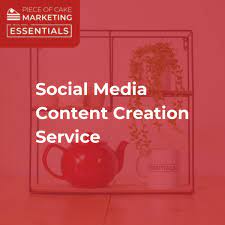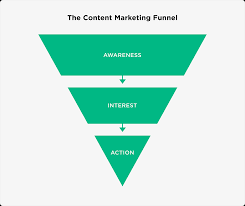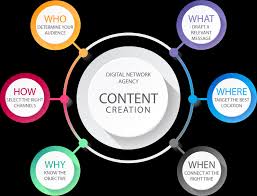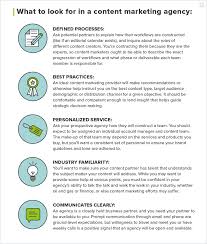Enhancing Your Brand with Professional Content Creation Services
The Power of Content Creation Services in Boosting Your Business
In today’s digital age, content is king. Whether you are a small start-up or a well-established corporation, having high-quality and engaging content is essential for attracting and retaining customers. This is where content creation services come into play.
Content creation services involve the planning, development, and management of various types of content, such as blog posts, articles, social media posts, videos, infographics, and more. These services are designed to help businesses create compelling and relevant content that resonates with their target audience.
One of the key benefits of using content creation services is that they can save you time and resources. Instead of struggling to come up with ideas and produce content on your own, you can rely on experienced professionals who understand the nuances of effective storytelling and audience engagement.
Moreover, content creation services can help enhance your brand’s visibility and credibility. By consistently producing valuable and informative content, you can position your business as an industry leader and build trust with your audience.
Another advantage of content creation services is their ability to improve your search engine rankings. Search engines like Google favour websites that regularly publish fresh and relevant content. By investing in content creation services, you can boost your SEO efforts and drive more organic traffic to your site.
Ultimately, investing in content creation services is an investment in the future success of your business. By delivering valuable content that educates, entertains, and inspires your audience, you can build a loyal following and drive conversions.
If you’re looking to take your business to the next level through impactful storytelling and engaging content, consider leveraging the power of professional content creation services. With the right strategy and expertise, you can unlock new opportunities for growth and success in today’s competitive digital landscape.
Six Essential Tips for Effective Content Creation Services
- Understand your target audience and tailor your content to meet their needs and interests.
- Maintain a consistent brand voice and style across all your content for better recognition.
- Use high-quality visuals such as images, videos, and infographics to make your content more engaging.
- Optimize your content for SEO by using relevant keywords and meta descriptions to improve visibility online.
- Regularly update and repurpose old content to keep it fresh and relevant for your audience.
- Engage with your audience through comments, feedback, and social media to build a loyal community around your content.
Understand your target audience and tailor your content to meet their needs and interests.
To maximise the effectiveness of content creation services, it is crucial to have a deep understanding of your target audience. By identifying their needs, preferences, and interests, you can tailor your content to resonate with them on a personal level. This personalised approach not only enhances engagement but also builds trust and loyalty among your audience. By focusing on meeting the specific needs of your target audience, you can create content that truly connects and drives meaningful results for your business.
Maintain a consistent brand voice and style across all your content for better recognition.
Maintaining a consistent brand voice and style across all your content is crucial for enhancing brand recognition and establishing a strong identity in the minds of your audience. By ensuring that your messaging remains cohesive and aligned with your brand values, you create a sense of familiarity and trust among your customers. Consistency in tone, language, and visual elements helps to reinforce your brand’s personality and differentiate it from competitors, ultimately leading to increased brand loyalty and customer engagement.
Use high-quality visuals such as images, videos, and infographics to make your content more engaging.
In the realm of content creation services, incorporating high-quality visuals like images, videos, and infographics can significantly enhance the overall impact of your content. Visual elements not only capture the audience’s attention but also help convey information more effectively and engagingly. By utilising visually appealing assets, you can elevate the quality of your content, make it more memorable, and ultimately create a more immersive experience for your audience.
Optimize your content for SEO by using relevant keywords and meta descriptions to improve visibility online.
To enhance the visibility of your online content, it is crucial to optimise it for search engines by incorporating relevant keywords and meta descriptions. By strategically integrating targeted keywords into your content and meta descriptions, you can improve your website’s ranking on search engine results pages. This SEO practice not only increases the likelihood of your content being discovered by your target audience but also enhances its overall online visibility.
Regularly update and repurpose old content to keep it fresh and relevant for your audience.
To maintain a strong online presence and engage your audience effectively, it is crucial to regularly update and repurpose old content. By refreshing existing content with new information, insights, or formats, you can keep it relevant and valuable for your audience. This approach not only helps in maintaining consistency but also allows you to breathe new life into older pieces, extending their lifespan and reach. By repurposing content strategically, you can maximise its impact and continue to provide value to your audience over time.
Engage with your audience through comments, feedback, and social media to build a loyal community around your content.
Engaging with your audience through comments, feedback, and social media is a crucial aspect of content creation services. By actively interacting with your audience, you not only show that you value their opinions and input but also create a sense of community around your content. Building a loyal community can lead to increased brand loyalty, higher engagement levels, and ultimately, more conversions. Encouraging dialogue and fostering relationships with your audience can help you better understand their needs and preferences, allowing you to tailor your content to resonate more effectively with them.











